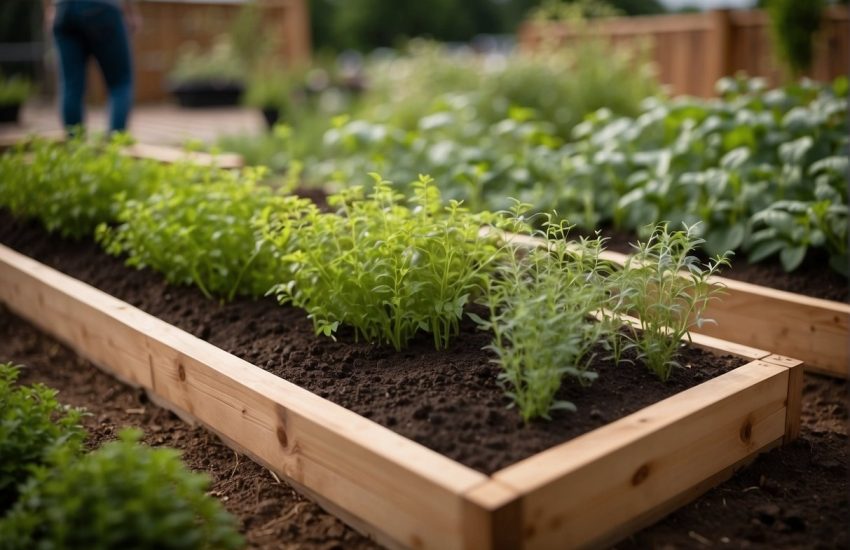How to Use Neem Oil on Tomato Plants Like a Pro [Facts 2025]
Every gardener has their tips and tricks for keeping their plants healthy and looking great. The safety of the plant is very important like in caring for aglonema pink moon there are some factors you have to keep in mind. This is the same in the case of tomato plant when use neem oil on them.
This blog post is all about using neem oil on tomato plants to help keep them pest free, healthy, and looking great! Neem oil is a natural pesticide that is extracted from the neem tree, and it has been used for centuries in Asia for this purpose. Keep reading to find out more about how to use neem oil on tomato plants!
What are the Benefits of Using Neem Oil?
There are many benefits of using neem oil on tomato plants, including:
1. Neem oil is a natural pesticide that can help to keep pests at bay.
2. Neem oil is also a natural fungicide, and it can help to prevent diseases such as powdery mildew.
3. Neem oil can help to promote healthy growth in plants, and it is often used as a natural fertilizer.
4. Neem oil is also known for its anti-inflammatory properties, and it can help to soothe irritated skin.
5. Neem oil is safe to use around children and pets, and it is also biodegradable.
6. Neem oil is an affordable way to protect your plants from pests and diseases.
Can you Use Neem Oil on Tomato Plants?
Neem oil can be an effective way to control pests on tomato plants. Tomatoes are susceptible to a variety of pests, including aphids, whiteflies, and the dreaded tomato hornworm. Neem oil works by disrupting the life cycle of these pests, preventing them from reproducing. So, using neem oil can help to keep them healthy.
When using neem oil on tomato plants, be sure to follow the instructions on the label. In addition, neem oil is a natural repellent for many common garden pests, so it can help to keep them away from your plants.
How to Use Neem Oil on Tomato Plants?
There are a few different ways that you can use neem oil on tomato plants, including:
1. spraying the leaves of the plant with a neem oil solution
2. Use a neem oil soil drench
3. adding neem oil to your tomato plants’ water
4. using neem oil as a fertilizer
Procedure:
You can make a neem oil solution by mixing 1 teaspoon of neem oil with 1 cup of water. Simply put this mixture into a spray bottle and spritz the leaves of your tomato plants. Be sure to get the undersides of the leaves, as this is where most pests like to hide. Repeat this process every few days until the infestation is under control.
When to Spray Neem Oil on Tomato Plants?
Neem oil kills and repels insects, so understanding when to use it on tomato plants is essential. Timing and method of tomato treatment are crucial for avoiding unintended consequences on helpful bugs.
Fungus gnats, honey bees, and ladybugs are just some of the beneficial insects that visit flowering plants and spread pollen. Thanks to this manipulation, plants can produce fruit and seeds.
It’s best to spray neem oil on your tomato plants in the evening or early morning, as this is when most pests are active. You’ll also want to make sure that the leaves are dry before you spray them, as wet leaves can cause the neem oil to drip off and won’t be as effective.
Is Neem Oil Safe For Tomato Plants?
Yes, neem oil is generally safe for tomato plants when used as directed. Neem oil is a natural pesticide that is derived from the seeds of the neem tree (Azadirachta indica) and is effective at controlling a wide range of pests, including aphids, mites, and whiteflies, which can be a problem for tomato plants.
When used as directed, neem oil is not harmful to humans or animals and is considered to be a safe and environmentally friendly pest control option. However, as with any pesticide, it is important to follow the label instructions and use caution when applying neem oil to plants.
Is Neem Oil Safe for Humans?
Yes, neem oil is safe for humans. It has been used for centuries in Asia for its medicinal properties. Neem oil is known for its anti-inflammatory properties and it can help to soothe irritated skin. It is also safe to use around children and pets. However, as with any pesticide, it is always best to use caution and follow the instructions on the label.
What are the Best Alternatives to Neem Oil?
There are a few different alternatives to neem oil that can be used on tomato plants, including:
1. Insecticidal soap
Insecticidal soap is a safe and effective alternative to neem oil. It works by suffocating the pests, and it is safe to use around children and pets.
2. Horticultural oil
Horticultural oil is another safe alternative that can be used on tomato plants. It works by smothering the pests and preventing them from reproducing.
3. Copper fungicide
Copper fungicide is a safe alternative that can help to prevent diseases such as powdery mildew.
4. Rotenone
Rotenone is a natural pesticide that can be effective against a variety of pests.
5. Bacillus thuringiensis (BT)
Bacillus thuringiensis (BT) is a naturally occurring bacteria that is effective against caterpillars and other pests.
Conclusion
Neem oil can be an effective way to control pests and promote healthy growth in your tomato plants. Be sure to follow the instructions on the label, and always use caution when using any pesticides.
Your local garden center or nursery can also give you more tips on how to use neem oil on your tomato plants. And if neem oil is not available in your region then you can also use its best alternatives for required results.
FAQs
Question
Can you spray neem oil directly on plants?
Answer
No, neem oil does not help with tomato blight. But the great thing is that It can help prevent early and late tomato blight and kill it in its early stages. However, it can be used as a preventative measure against powdery mildew and other diseases.
Question
Does neem oil help tomato blight?
Answer
Neem oil can be added to soil in several ways. You can apply it by using a soil drench. You can add it to compost, use it as a garden fertilizer, or make a neem oil tea. Neem oil is a great way to add nutrients to your soil and promote healthy growth in your plants.
Question
How do you apply neem oil to the soil?
Answer
Some plants do not like neem oil. These include impatiens, fuchsias, hibiscus, and some roses. Be sure to test a small area of the plant before applying neem oil to the entire plant.
Question
Which plants do not like neem oil?
Answer
It is best to spray neem oil every 7-10 days. This will help to prevent pests and diseases from taking hold of your plants
Question
How much neem oil to use on tomatoes?
Answer
To use neem oil on tomatoes, mix 1 teaspoon of neem oil and 1 teaspoon of dish soap in 1 quart of water. Spray the mixture on the leaves and stems of the tomato plants, being sure to coat the undersides of the leaves. Repeat every 7-10 days as needed. Do not apply neem oil in hot weather or when temperatures are above 90 degrees Fahrenheit.
Question
When not to use neem oil on plants?
Answer
Do not use neem oil on plants when temperatures are above 90 degrees Fahrenheit, when plants are in bloom, when plants are stressed or damaged, or if you are unsure about the safety of using neem oil on a particular plant.
Question
Do you water after spraying neem oil?
Answer
It is generally not necessary to water plants after applying neem oil. In fact, watering immediately after application may wash off the neem oil before it has a chance to be absorbed by the plant. It is recommended to apply neem oil to plants during the early morning or late evening, when the sun is not at its strongest, to allow the oil time to be absorbed before the plant is exposed to direct sunlight.


